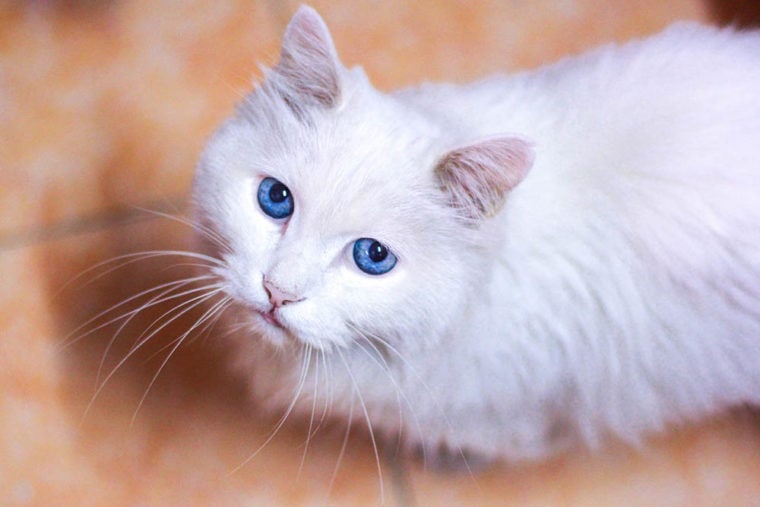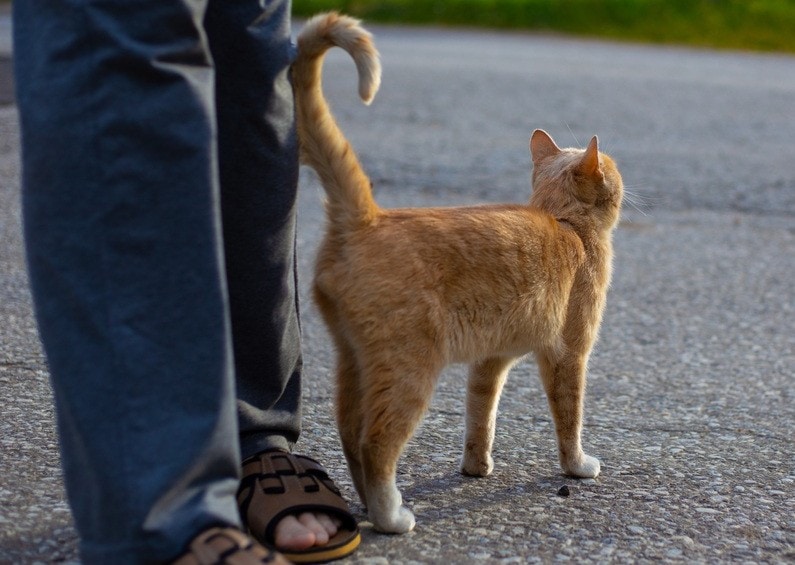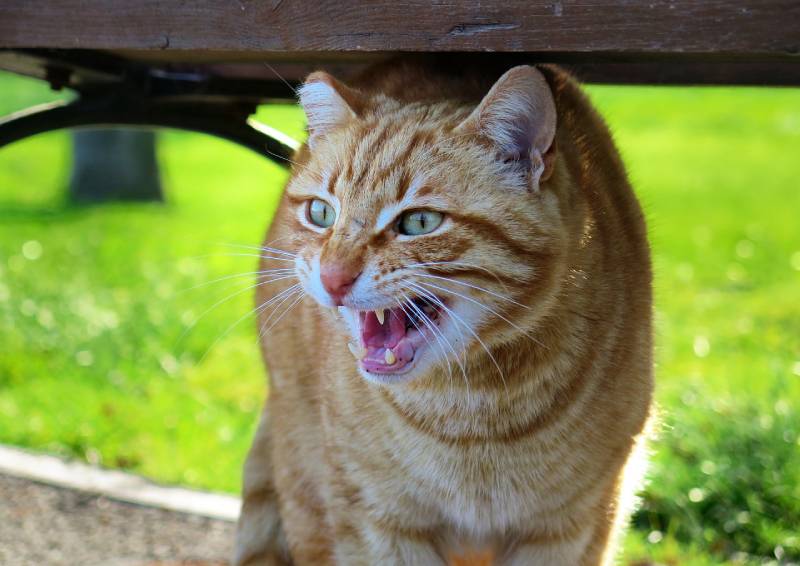
Click to Skip Ahead
When we think of cats purring, we typically think of a content kitty curled up in our laps or enjoying pets. And while this can be the case, sometimes, a cat will come up to you and start purring because they’re feeling excessive nervousness or stress.
But how can you tell the difference between content purrs and those of a nervous or stressed kitty? It all comes down to recognizing the other symptoms of a nervous or stressed cat. That’s why we took the time to highlight some of the most common ways cats will act if they’re nervous or stressed.
If they’re displaying these symptoms and purring excessively, there’s a pretty good chance that your fur baby isn’t feeling their best.
How Do Cats Act When Nervous?
Cats can absolutely start purring more when they start feeling nervous. But while they might purr, they’ll usually experience a few other symptoms to help you understand what’s happening. If they’re purring and showing a few symptoms, nervousness might be the underlying issue.

Avoiding Eye Contact/Staring
This one really depends on your cat, and it can go either way. Some cats will try to slink away when they’re feeling nervous, while other cats will try to stare you down and get you to back off. Either way, it’s best to give your cat a little space so they can calm down if they’re acting like this.
Abnormal Tail Activity
Cats have complete control over their tails, and they use them as non-verbal communication tools. If your cat is feeling nervous, their tail can react in two different ways. With slight nerves, you’ll usually see a slow flicking of the tail, but if they get too nervous, they’ll hold their tail still and close to their body.

Dilated Pupils
If your cat is nervous, their eyes will usually tell you everything you need to know. Dilated pupils often indicates that they are fearful of something. Take a look at their eyes and see if they match the current lighting conditions.
Rapid Breathing
Rapid breathing is a pretty universal response to nerves, and your cat isn’t any different. If you think they might be feeling nervous, see if they’re breathing faster than they should. If they are, it could be nervousness.

Hair Standing Up/Ears Held Back
If your cat is nervous the hair on their back will often stand up and they’ll hold their ears flush against their body. It’s their way of trying to look bigger than they are, and in the wild, it can be a pretty effective tool to communicate with other animals by telling them to back off.
Aggression/Trying to Escape
Fight or flight is a real thing, and with your cat, it can go either way. Some cats will act out aggressively when they feel nervous, and others will simply try to run away to escape the situation. Whether they try to fight or run away all comes down to the situation and your cat’s personality.

How Do Cats Act When Stressed?
Cats can feel stress, too, and while they might come up to you and start purring, there are a few other common reactions your cat might experience. Each cat is different, but if they’re matching multiple symptoms while undergoing a life change, stress could be the reason.
Hiding More than Usual
If your cat is feeling stressed, they might just want some time alone. When that’s the case, they’ll hide under beds, couches, or simply head into empty rooms. They’re looking for some time alone to calm down a bit, and hiding is a great way to get that alone time.

Decreased Food and Water Consumption
When you’re feeling stressed you might notice that you’re not as hungry or as thirsty. It’s the same thing with your cat. Eventually, they’ll open back up and start eating and drinking again, but a short bout of limited fasting can be a sign of stress.
Excessive Meowing
Not only can your cat purr when they’re experiencing stress, but you also might notice that they’re meowing quite a bit. Excessive vocalizations can mean a lot of things, but stress is certainly a possibility.

Vomiting or Diarrhea
If your cat doesn’t handle stress well or they’re experiencing a lot of stress, it’s certainly possible for them to have a physical reaction. Vomiting or diarrhea or two common reactions to stress, so just do your best not to stress them out more if it happens.
Final Thoughts
Cats are complex emotional creatures, and they can communicate with us in many different ways. Get to know your cat and what’s normal for them, and if they start to act out of the ordinary, it’s a safe bet that something else is going on.
Purring is just one tool they have at their disposal, and they can use it in conjunction with lots of different things to tell you what they’re feeling and what they need!
Featured Image Credit: Hunt Han, Unsplash








